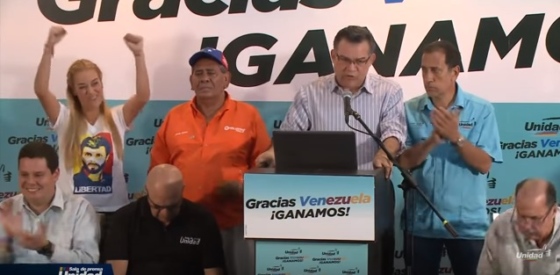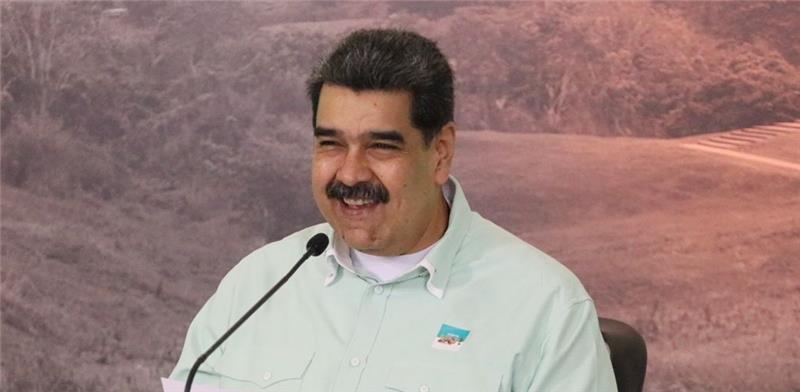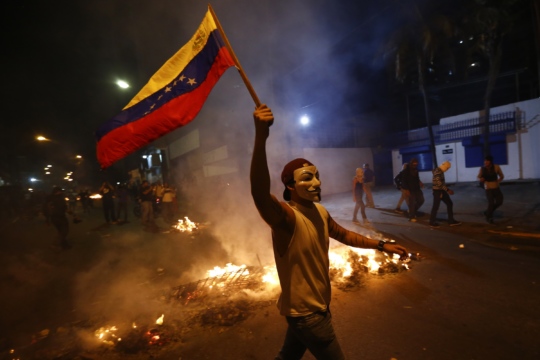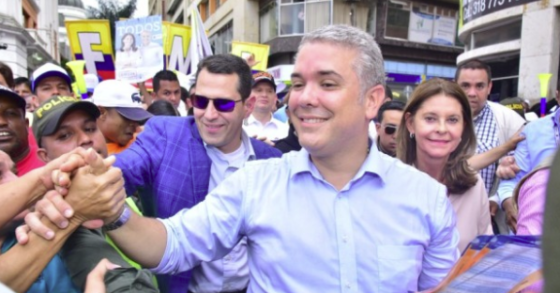
What Does the Future Hold for Venezuela?
What do the election results mean for President Nicolás Maduro and his grip on the presidency?
A Daily Publication of The Dialogue
Ahead of regional elections in November, Venezuela’s ruling Socialist Party held its primaries on Aug. 8 to select candidates who will be running to be governors and mayors across the country. More than 300 offices will be filled after the November vote, most of which have belonged to members of the Socialist Party for years. How are the November regional elections shaping up? With a coalition of opposition parties expected to participate in the upcoming vote, how likely is a greater division of power to emerge from the election? How much support does the opposition have, as compared to the Socialist Party and President Nicolás Maduro, ahead of the vote?
Vanessa Neumann, former Juan Guaidó-appointed Venezuelan ambassador to the United Kingdom: “I agree with Ryan Berg’s analysis that the primaries of the ruling Socialist Party (PSUV) are an exercise in power consolidation: the PSUV gets to assess effectiveness of its candidates in mobilizing local constituents, but then in the next round, it gets to veto anyone who raises too much of a challenge to those at the top of local patronage networks of kickback and corruption schemes, whether based on food, fuel, medicine, narcotics or just extortion. The primaries make it more difficult for opposition candidates who aren’t battle-hardened and have little effective party support behind them. The opposition is in a difficult Catch-22 position. By running, it helps to legitimize the elections that will not meet ‘free and fair’ standards of any real democracy. However, if it doesn’t run, the opposition can never build its own electoral system or following, and it just looks like a privileged crybaby both to in-country Venezuelans and the international community, whose support has waned over the past couple of years. The opposition needs to be in it to win it—even if it can’t. It needs to start somewhere. The opposition needs to have superb and well-documented observation of every election, for two purposes: first, to build its legitimacy in the rare instance when it does win a local position, providing a hedge against the inevitable circumventing of financing and command-and-control that the Chavistas always do in opposition-held terrain; second, to delegitimize the regime ‘win’ in cases where it has simply been stolen. Close observation, following the Chilean model, is what is going to be needed in any and all elections in Venezuela, if there is any chance for a peaceful change, driven by the pressures of other concurrent transition negotiations.”
Peter DeShazo, visiting professor of Latin American, Latino and Caribbean Studies at Dartmouth College and former U.S. deputy assistant secretary of state for Western Hemisphere affairs: “Elections in Venezuela provide window dressing for the authoritarian Maduro regime. They are a card game played with a stacked deck. Maduro is not about to let himself be voted out of office or have his power circumscribed through an election. That bodes ill for the possibility of free and fair regional/municipal elections in November. Recent talks between the regime and the opposition in Mexico, which are scheduled to reconvene in September, will influence the willingness and ability of the traditionally fractured opposition to unite and participate in the November election. The regime hopes to generate enough participation by the opposition to make the case with sectors of the international community that the election is legitimately competitive, with the goal of easing the sanctions imposed by the United States and others. The opposition seeks guarantees from Maduro to allow for a free and fair election and to release political prisoners. Perhaps some middle ground can be found. The United States, Canada, Britain and other European and Latin American democracies should support credible efforts to hold free and fair elections in Venezuela and to verify the integrity of the process. The willingness of the United States to ‘review’ sanctions is positive. A more level playing field for elections in November would be a significant but only a first step in addressing Venezuela’s multifaceted crisis. One step, however, can lead to others and could release bottled-up democratic energy within society. But the odds against a transition to democracy remain formidable.”
Abraham F. Lowenthal, founding director of the Inter-American Dialogue and professor emeritus at the University of Southern California: “The process for negotiation and dialogue in Venezuela that was announced in Mexico on Aug. 14 and the arrangements, still being discussed, for the November regional and mayoral elections are separate but interactive. The content and tone of the agreed memorandum, specifying the agenda for negotiation and mutually agreed processes, recognizing the Maduro government and establishing the ‘Platform of Unity’ comprising the Guaidó coalition and other democratic opposition factions, should increase the pressure on Guaidó’s team and its supporters to participate actively in the November elections lest they otherwise be displaced by other opposition leaders. If the Guaidó forces as well as those guided by Henrique Capriles and other opposition elements can forge a useful electoral strategy and can overcome their rivalries to campaign with a shared vision and perhaps even united candidates, they have a good chance to win significant numbers of governorships and mayoralties, provided the National Electoral Council tightens electoral procedures in a fair and even-handed way. Even if they do not win a majority of the positions, they should win enough to significantly increase their leverage in subsequent elections by improving their messages, organization, campaign issues and techniques. One can at this point expect more flexibility in Venezuela over time than has seemed possible for several years, though there are sure to be detours.”
Gabriel Hetland, assistant professor of Latin American, Caribbean and U.S. Latino Studies at the State University of New York at Albany: “The outcome of Venezuela’s November regional elections for mayors and governors will be shaped by multiple actors and various processes now underway. A crucial factor is the ongoing negotiations between the government and the opposition in Mexico. If successful, the negotiations could open the way for competitive elections with E.U. observation and an end, or lessening, of debilitating U.S. sanctions. This would open up Venezuela’s political scenario more than has been the case in years. The possibility of this happening suggests that the hardline opposition, led by Juan Guaidó, and the Biden administration may be moving away from the disastrous maximalist strategy of recent years. If Biden has done so it signals a victory for progressive Democrats pushing him to lessen or end sanctions. Moderate opposition parties have already indicated that they will participate in the elections. The outcome of negotiations will certainly shape the balance between opposition hardliners and moderates, with both standing to gain by participating in the elections. The government, for its part, would likely receive a boost if it can point to reduced sanctions. Yet popular discontent remains high. The ruling United Socialist Party’s heavy-handed and decidedly undemocratic management of recent primaries—in which party leaders overrode grassroots voters in many key races—may spark some grassroots backlash, the outcome of which is unclear. In short, there are many dynamic factors shaping the elections, which makes them arguably the most interesting and important to take place in years.”
Gregory Wilpert, deputy editor at the Institute for New Economic Thinking: “Venezuela’s November regional elections represent an important test of the relative strengths of the opposition and the Maduro government as most opposition parties will be participating. However, given that the hardline opposition, under Juan Guaidó’s leadership, continues to call for a boycott, and that the opposition remains fragmented and in disarray between hardliners and moderates, this test of strength will not normalize Venezuela’s political process. The relative support of the different political forces in Venezuela has not changed much since the economic crisis that began in 2014, whereby roughly a third supports ‘chavismo’ (some unconditionally and some critically), a third supports the opposition (some the hardliners and some the moderates) and a third supports neither side. Given the hardliners’ boycott of the November elections, it is likely that pro-government candidates will come out on top once again, despite Venezuela’s severe economic crisis. The fact that Maduro has pledged to remove central government control over municipalities, where the opposition had previously won local elections, also represents an important step forward. Much more important for Venezuela’s future in the near term, though, are the government-opposition negotiations taking place in Mexico at the moment and whether the Biden administration will finally abandon Trump’s draconian sanctions regime against Venezuela.”
Allan R. Brewer-Carías, emeritus professor at the Central University of Venezuela and senior partner at the law firm Baumeister & Brewer: “The November regional elections have been organized by a National Electoral Council that the government and the ruling Socialist Party control. The government has imprisoned and disqualified from the election several political leaders, and the Supreme Court has thwarted many opposition parties, appointing new authorities who are close to the government to run them. The elections cannot take place after last week’s signing of the memorandum of understanding between the government and the opposition Unitary Platform, in which both parties have agreed to carry out a ‘comprehensive and incremental dialogue and negotiation process’ based on an ‘agenda’ that is conducted ‘under the protection of the constitution,’ with the mutual ‘commitment’ to strengthening an ‘inclusive democracy’ and a ‘culture of tolerance and political coexistence’ and with the willingness ‘to agree on the necessary conditions for the electoral processes enshrined in the constitution.’ If this commitment for a process of dialogue and negotiation is serious–as I suppose it is–and it is to be accomplished in good faith, the first action that the government must take–that only the government can accomplish–is to suspend the elections in which political rights and electoral guarantees are not assured for all. Only with that suspension can the parties enter into a ‘comprehensive and incremental dialogue and negotiation process,’ precisely based on the ‘agenda’ that has been agreed to assure ‘political rights for all’ and ‘electoral guarantees for all,’ through an ‘election schedule for observable elections,’ respecting ‘the constitutional state of law.'”
 The Latin America Advisor features Q&A from leaders in politics, economics, and finance every business day. It is available to members of the Dialogue’s Corporate Program and others by subscription.
The Latin America Advisor features Q&A from leaders in politics, economics, and finance every business day. It is available to members of the Dialogue’s Corporate Program and others by subscription.
What do the election results mean for President Nicolás Maduro and his grip on the presidency?
An economic and humanitarian crisis, precipitated by the Maduro regime, has brought Venezuela to the brink of collapse.
Iván Duque, a conservative former senator, on Sunday won Colombia’s presidential runoff election. What does it mean for the country?
 The party of Venezuelan President Nicolás Maduro held its primaries earlier this month. // File Photo: @NicolasMaduro via Twitter.
The party of Venezuelan President Nicolás Maduro held its primaries earlier this month. // File Photo: @NicolasMaduro via Twitter.

